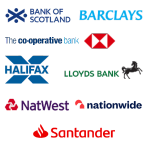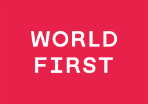Daniel is Founder and CEO and has 20 years of experience in the international finance world focusing on cross-border payments, technology and the property sectors. Daniel is widely quoted as an expert within the money transfer industry including by The Economist, The Wall Street Journal, Reuters, CNBC and Bloomberg. Daniel is passionate about helping consumers and businesses find the best and most efficient ways to transfer money internationally.
Frequently asked questions
How we calculate the savings
Contents
Summary
South Korea money transfer regulation
South Korea’s regulatory authority
Foreign investment regulation
Currency
Summary
The South Korean won (KRW) is fully convertible and sending money to Korea and money transfers from Korea are unrestricted in most cases. Today, the Foreign Exchange Transaction Act (FETA) only limits international money transfers that are considered dangerous to public order, such as money laundering and terrorism financing.
South Korea money transfer regulation
FETA regulations has three main restrictions: only licensed, viable domestic firms are permitted to borrow foreign currency, non-residents are not allowed to purchase won-denominated hedge funds, and the government monitors the timely repayment of Korean banks’ foreign loans.
Foreign exchange transfers can only be completed by entities that are registered and authorised by the Ministry of Strategy and Finance (MOSF). All South Korean banks, including branches of foreign banks, are permitted to conduct foreign exchange operations. Foreign exchange operations in Korea consist primarily of won to US dollar transfers.
South Korea’s regulatory authority
The central bank, the Bank of Korea (BOK), monitors the health of the financial sector, forms and conducts monetary policy, and works to maintain price stability. The central bank works to formulate foreign exchange policy in coordination with the Ministry of Strategy and Finance (MOSF).
For two decades, South Korea strictly regulated foreign exchange transactions and pegged its currency, the won, to the US dollar. In an effort to develop the economy, the government moved the won to a managed float system in 1980, which referred to a basket of several currencies. The government continued its liberalisation policy gradually, and by 1988, nearly all of its foreign exchange controls had been removed. The won was moved to a free-float system in 1997 at the onset of the 1997-98 Asian financial crisis. The Minister of Strategy and Finance may temporarily suspend or restrict foreign exchange transactions in the event of national natural or economic disaster, but even these restrictions will not apply to foreign investment.
Foreign investment regulation
The government has made great strides since the 1980s to liberalise all overseas capital account transfers, for purposes of foreign direct investment (FDI) or stock market investment. South Korea is a major global FDI destination, and the government has reiterated it commitment to increase regulatory transparency and encourage capital transfers. The largest share of FDI in Korea comes from the US (US$3.53bn in 2013), followed by Japan (US$2.69bn). The government has, however, come under pressure in recent years for what is seen as excessive economic regulation; South Korean president Park Geun-hye confirmed that the deregulation of key sectors such as finance, tourism and software will be a government priority in 2014-18.
The country still applies some FDI restrictions under its Foreign Investment Promotion Act (FIPA). According to FIPA conditions in 2014, restrictions are in place for 27 industrial sectors; three (related to public administration) are entirely closed, while the remainder are partially or conditionally open to foreign capital. All other sectors of the economy are open, but foreign exchange banks must be notified before applying an FDI project for approval. Thanks to South Korea’s strong legal and administrative context, most demands are processed within days, if not hours. The international remittance of proceeds from business operations is guaranteed under FIPA.
Currency
South Korea’s currency, the won (KRW), has banknotes in denominations of 1,000, 5,000, 10,000, and 50,000 won. Coins are issued with a value of 10, 50, 100 and 500 won.
















